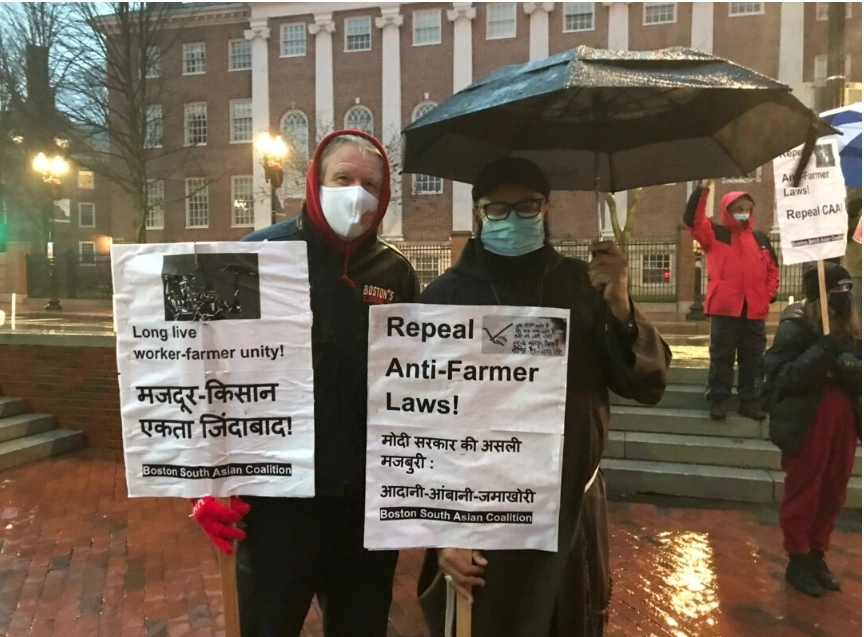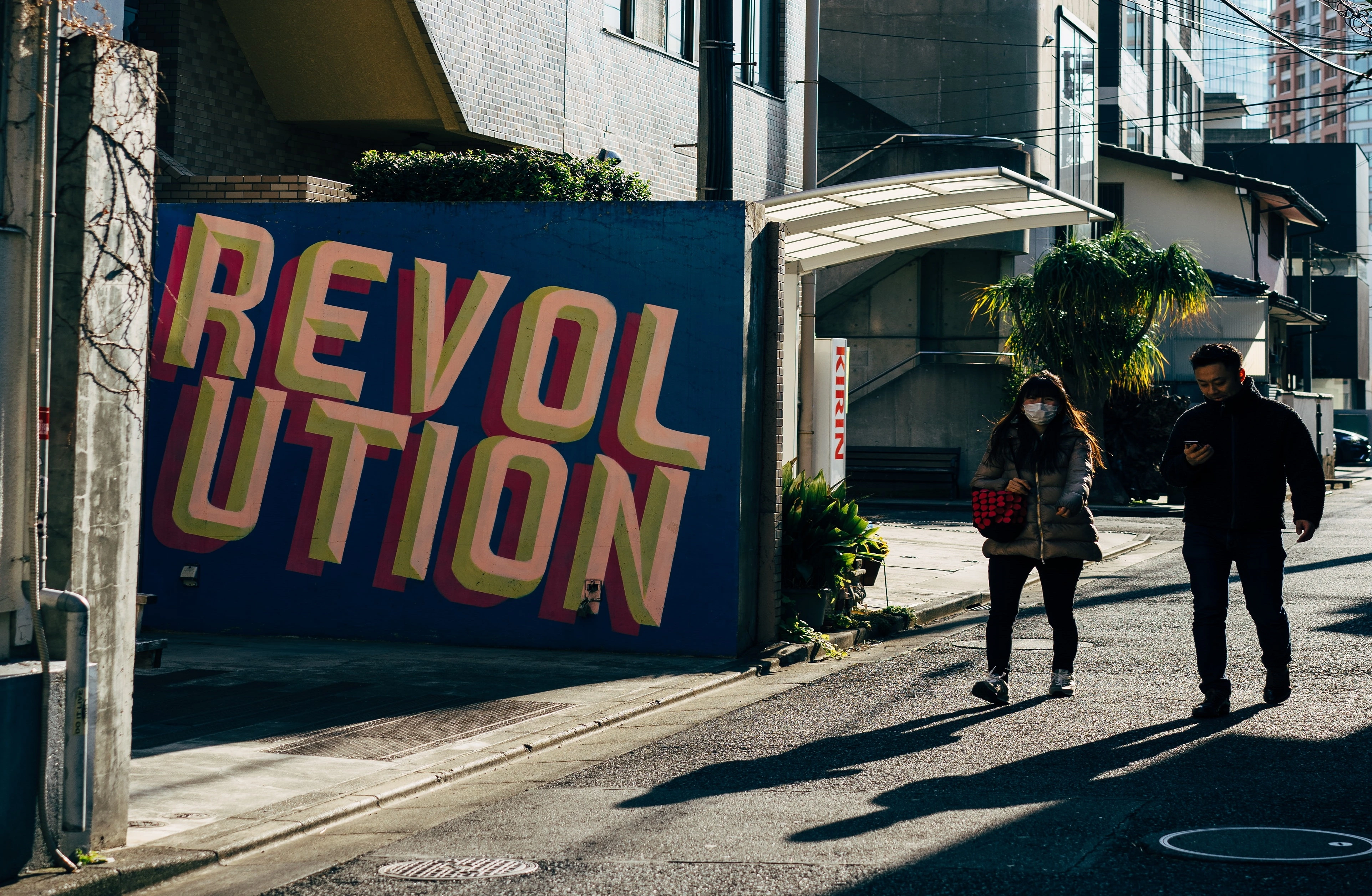Mutumba is a Kiswahili word that was originally used to refer to second hand clothes. This is because the first second hand commodities that were sold at a large scale were clothes. Now that today second hand commodities have become the norm rather than the exception in East Africa, mutumba refers to all second hand items, clothes, shoes, utensils, vehicles, machines, food, even medicine, etc. In this essay, I also take the liberty to refer to as mutumba all foreign reactionary ideas or ideologies that are aimed at preventing progressive or revolutionary change and that serve to maintain the political, economic, social and cultural order of poverty, dependency and underdevelopment in Africa.
In Kenya, like in many parts of Africa, the importation, buying, selling and consumption of all sorts of second hand items has become a culture. It is this negative culture and process of dependence on second hand foreign goods, values and ideas that I call mutumbaism. Mutumbaism is a consequence of the implementation of neoliberalism economic policies in the African continent and contributes towards the making of the state of dependency and underdevelopment.
Neoliberal globalisation is contributing to the underdevelopment of Kenya and compromising its national freedom and sovereignty. Increasingly, many Kenyans both professional and ordinary people, are immigrating to Southern Africa, Europe and the USA hoping to find opportunities of earning better living. The brain drain from Kenya to the more prosperous or promising countries is inherent in the process of immigration and neoliberalism while it also contributes to vicious circle of underdevelopment. What is true of Kenya is also generally true of most of Africa, Asia and Latin America, subject to the specific historical and material conditions of each country.
The reality of the phenomena of mutumbaism in Kenya
Kenyan markets, whether in the rural or urban areas, are today full of all sorts of mutumba, second hand commodities, most of which are imported from Western Europe, USA, Canada and Japan. In the 1960s, there were hardly any mitumba in the Kenyan markets. Then second hand clothes were referred to as Marehemu George, meaning the clothes of dead people personified by the dead King of England, George VI. This was in order to discourage people from wearing them. It was only desperate people who had to wear clothes left behind by the dead. One, therefore, had to be extremely poor in order to wear muitumba. In those days, the material circumstances allowed Kenyans to hold on to their pride. Then the economies of African countries were performing well and causing positive development. This was more so in Kenya where the people were enjoying one of the highest standards of living in the continent. Emigration due to poverty or unemployment was hardly known. The vast majority of Kenyans who went to study abroad would rush back to Kenya as soon as they finished their studies. As for ordinary Kenyans, the idea of immigrating in search of a living did not exist. Not so nowadays!
Today the trade in mitumba has grown to be one of the largest informal economies in the country. One of the biggest import commodities of the country is mitumba. The largest markets in Kenyan urban and rural areas deal with second hand clothes and other mitumba items. Thousands of people earn their living through buying and selling mitumba. The majority of Kenyans now wear second hand clothes. While in the beginning one considered it a shame to wear second hand clothes and if she/he had to she/he would not reveal the fact. Nowadays second hand clothes have been accepted as part and parcel of life and are sold and used openly and without shame.
The harsh living conditions brought about by the deteriorating economy, that as in most Sub-Saharan Africa began in the mid-1970s are eroding the pride of Kenyans. This includes using all means possible and enduring all types of risks and degrading conditions to immigrate to foreign countries, especially Europe, USA and the Middle East, and do the kind of jobs they would not accept to do in their country of birth.
Today the majority of Kenyans are so poor that they cannot afford to buy new clothes. As poverty escalates and the neoliberal economic policies cut more and more jobs through retrenchments brought through the 'rationalisation' of the civil service, privatisation of state enterprises and the closure of local industries unable to compete with foreign industries, the number of those who rely on mitumba is increasing rapidly. Second hand clothes are seen and even accepted as the solution in a situation where millions would practically go naked without them. The problem is that while mitumba may alleviate the immediate problem it is certainly not the long term and sustainable solution to poverty. It is in fact part and parcel of the problem that constrains the development of local industry, trade and agriculture. Its implication to the cultures and humanity of Kenyans and the future of the country is horrendous, to say the least.
Other mitumba commodities
Again, in the beginning mitumba was only about clothes. However, today the majority of Kenyans buy and use all sorts of mitumba commodities: shoes, socks, inner-wear, blankets, bed-sheets, curtains, utensils, etc. Many vehicles and most cars on Kenyan roads are mitumbas imported mostly from Japan and also from Europe, the majority of which enter the country via Dubai and are therefore are also called dubais. The cars also use second hand tires and other second hand spare-parts imported from Europe and Japan. All sorts of food-stuff, milk, eggs, sugar, meat, fruits, a lot of which is considered as mitumba in their countries of origin, are sold in the Kenyan supermarkets and open markets. Food that today in the West is regarded as junk food and therefore unhealthy has of late appeared in the Kenyan markets and is becoming more and more popular among the middle class, thanks to economic liberalisation. Here I refer to the food sold by multi-national corporations such as Mcdonald's that are increasingly being criticised for their unhealthy foods. One of the impacts of globalisation and trade liberalisation is the coming of Nandos, a South African food company equivalent to Macdonald's. Fast - food restaurants have increased in the food markets in Kenyan towns where they sell frozen chicken, meats, and hamburgers, some imported from outside the country. This is having a negative effect on the eating habits of Kenyans as fresh and healthy foods are becoming more and more expensive. Tobacco multinational corporations that are prohibited from advertising in the Western countries advertise freely in Kenya and encourage the youth to the dreadful smoking habit. Unilever and Nestle, for example, the multi-nationals that have a giant share in the food and beverage industry in Kenya, have committed themselves to reject "genetically modified ingredients for their European products" It should be noted that the commitment of the corporations is to European markets and not Kenyan ones. So even in a situation where the question of the impact of transgenic organisms and food to health, safety and the environment has not been resolved, the corporations regard Kenyans as mitumba citizens of the world and can therefore afford to gamble with their lives with impunity.

Kenyans are consuming mitumba ideas and culture
Mutumbaism is not about material goods alone. It is also about education, ideas, culture. In the era of great scientific and technological revolutions in the world, particularly information technology, Kenyans import mitumba knowledge from the West through the print media, radio, television, the internet and other electronic media. To make it worse, this is happening when knowledge is increasingly being privatised and commercialised in the name of Intellectual Property Rights (IPRs), and in the process underdeveloped countries like Kenya marginalised in relation to scientific research and information (The Crucible II Group, 2000).
Yet, today, in the era of globalisation knowledge is deemed to be the most important factor of determining the development of a nation (ibid., 2000:4). Books that are no longer needed in schools in Europe, USA, Canada, Australia, etc. are either sold or donated for use in schools, colleges, universities and other educational institutions in Kenya that are too poor to afford up to date ones. Kenyan scientists and researchers in Kenyan institutions of research and higher learning use second hand equipment bought from the northern countries or donated to them. In the age where computers are invaluable in the search for knowledge, there are hardly any computers available to universities and institutes of research and higher education in the country, leave alone schools. But the scarce resources available disappear through corruption or are squandered through importing luxurious cars and other goods for the Kenyan elites. The professors and lecturers at the institutions of higher learning are either too busy dealing with too large classes of students or are engaged in money minting activities to find time to renew and develop their knowledge through research.
In the process of privatisation of universities - including public ones - the university administrators are more concerned in making money for the universities (and for themselves of course) than production of good knowledge to the students and the country. As a consequence, education standards have gone down alarmingly. Thugs who find fertile ground in the corrupt institutions impose themselves upon other students (transformed into zombies) to be student leaders with the connivance of university administrators. Academic freedom that is seen as a threat to the stability of the institutions by the corrupt and reactionary professors that administer them is not tolerated in the universities that are governed through imposition of the culture of fear, threats, intimidation and silence. Ironically, there is more democracy in Kenyan society in general than inside the educational institutions that continue to expel students arbitrarily and to prevent robust intellectual discourse. This process produces mitumba graduates who enter the cycle of mutumbaism going on in the country that is also reflected in the Kenyan leaders today. The exiting mitumba education teaches students and pupils values of individualism, greed, selfishness, corruption and worship of money rather than those of creativity, hard work, honesty, modesty, patriotism and commitment to the common good and humanity. They are not encouraged to search and struggle for truth, social justice and a better Kenya and world.
The Kenyan mass media depend on foreign news agencies such as Reuters, Associated Press, AFP, etc. for the global news they print and broadcast to Kenyans. The majority of the Kenyan journalists, whether from the print or electronic media, write and broadcast bourgeois platitudes on democracy, human rights, governance, gender, etc., that only strengthen capitalism and imperialism in the country. The mass media that is mostly owned by foreign and local capitalists, exists to make money and to defend the status quo of neoliberalism. Their content is riddled with lies and permeated with corruption and gives voice only to those in power, with money and defenders of bourgeoisie ethics and platitudes that are repeated daily and weekly. They have no space for those who challenge the status quo of the capitalist and imperialist system established in the country. Besides, American and British films, many of which are outdated, dominate Kenyan national television and the videos seen in private homes. And while this is happening local films made by local artists are rejected, ignored and hardly popularised. Second hand commercial advertisements are preferred to local made ones to the detriment of local advertising companies. Mutumbaism and neoliberalism fights against the growth of local art and artists.

Under mutumbaism and neoliberal globalisation the importation and consumption of pornography has increased. Gender and feminist activists led by the petit-bourgeois women and men, the majority of who are in NGOs sponsored by Western countries do not find it necessary to struggle against pornography in the country. Pornography is extremely humiliating and dehumanising, especially to women, as much as it is allowed by bourgeois freedoms. At the same time, anti-social habits that are regarded as anathema by the cultures of Kenyans are today being imposed as agendas for discussion by donor nations through the media and some local NGOs. Instead of, for example, struggling to change the material conditions that force people, especially women, into prostitution, some people especially in NGOs, are now making money by making seminars to organise prostitutes whom they call 'sexual workers' to form trade unions and thus legalising sex as a commodity. Yet prostitution is one of the worst manifestations of the degradation and exploitation of the poor, especially women.
NGOs, that are supported by the imperialist’s aid in all ways and that are presented as an alternative to the state, are strong holds of bourgeois ideas and values in the country. Many are led by extremely greedy 'professional' beggars and con men and women who are experts of writing proposals for 'aid' money, rubbing shoulders with foreign diplomats or donors, organising seminars and workshops in urban areas and publishing books, mostly in English, that remain in their luxurious offices. Corruption, tribalism, nepotism, cronyism, lack of transparency and accountability, intrigues, etc., are characteristics of the majority of Kenyan NGOs. The foreign donor organisations that in many cases are led by people who are just as greedy and corrupt, know this, but as long as the local NGOs continue to embrace neoliberalism in theory and in practise, they will continue to receive funding from them.
Thus in the process of mutumbaism, like most of other African peoples under the structural adjustment programs (SAPs) imposed upon the nation by the World Bank (WB) and International Monetary Fund (IMF) through the government, Kenyans are made to depend on the Western definitions of democracy. They are taught that bourgeois democracy is not only the Alfa and Omega of democracy but also that it is above classes, states and nations. Today terms such as 'human rights', 'good governance', 'transparency', 'accountability', 'gender', 'peoples participation', 'grassroots', etc., have become platitudes that are only paid lip service by the governments and non - governmental organisations who parrot them. For as long as they remain devoid of history and class analysis, as long as they are not integrated in the anti-capitalist and anti-imperialist struggle, they will remain as hollow and elusive as bourgeois’ democracy itself.
Neoliberalism, assisted by the Kenyan state, pro-capitalist NGOs, electronic and print mass media and bourgeois intellectuals and politicians of all sorts, strives to make Kenyans believe that there is no alternative to the capitalist system and the neoliberalism imperialist world order. In this way, foreigners and their stooges in power in our country shape the everyday worldview of Kenyans. So it happens that Africans are made to view and measure their cultures from standards set by outsiders who advocate for the globalisation of bourgeoisie values -mutumbaism.

Mutumbaism is a manifestation of the effects of neoliberal globalisation
Mutumbaism is yet another testimony about how neoliberal globalisation has made a large section of human beings into second hand citizens of the world. It is about the inequality between the North and the South, the rich and the poor, in the era of globalisation based on capitalist ideology and praxis, and how this relationship impacts on the livelihoods, economies, cultures and psychology of the people of both countries. It is about the struggle for survival of the people whom Fanon (1967) has called the “wretched of the earth”, people who today have to depend on things and ideas produced and disposed of by other people. In the face of economic globalisation that worships the power of money and the 'wisdom' of market forces, the creative potential and humanity of billions of marginalised people is being squeezed out.
Within the rich countries, it is the poor or people from the working class and immigrants who are reduced to the depending on mitumba material goods. Mutumbaism has therefore a class character both at the national and international level, with the poor and marginalised people being reduced to consuming things used and not needed by other people. Consumerism is a characteristic of capitalism. In a system based on competition, exploitation of person by person and the worship of material things rather than human values, there is the culture of buying, accumulating and disposing of things even when they are still useful. For example, one would buy a shirt or a blazer and use it for one week and throw it away to buy a new one. There are second hand commercial and charity shops where people can dispose of their mitumba "to help the poor people of Africa and the Third World" and clear their conscience in the process. This is what starts the process of the accumulation and globalisation of mitumba as I witnessed it in Europe. Mitumba cannot accumulate from the poor people of the South and the North who cannot afford to throw away things until they are sure they are no longer useful. That is why in Europe and USA, for example, the majority of the consumers of mitumba are immigrants, mainly from the Third World, who also form the vast majority of the poor and marginalised, or whose cultural roots, values and obligations cannot allow them to engage in bourgeoisie consumerism even when living in foreign countries.
To read the full edition of this article, subscribe to our monthly issue






